Disarmament, Demobilisation and Reintegration
Following the signing of the MoU on Military Affairs in August 2018, both the Government and Renamo have been committed to advancing on the central issue of Disarmament, Demobilisation and Reintegration (DDR). The MoU sets out an agreed set of actions and guiding principles for the placement of officers from Renamo into the structures of the Mozambique Defence Forces (FADM) and Republic of Mozambique Police (PRM) and for the disarmament, demobilisation and reintegration of Renamo armed elements. The DDR process is designed to be inclusive and participatory and seeks to create conditions necessary to allow Renamo combatants to lay down arms and return home.
The disarmament, demobilisation and reintegration of 5,221 Renamo combatants (257 women and 4,964 men) has been underway since July 2019 when registration of the first group of combatants took place in Gorongosa district, Sofala province. DDR activities take place in specially designed Assembly Areas (AA) where ex-combatants pass through a comprehensive registration and sensitisation process, which helps them begin their transition into civilian life. Registration and hand over of weapons and other military paraphernalia also takes place. During their time in the AA, DDR beneficiaries participate in reintegration interviews which provide valuable information on their hopes and plans in this next phase. As part of their reintegration process, DDR beneficiaries and family members are invited to participate in economic, livelihood and education opportunities based on needs, capabilities, and local opportunities within the communities where they choose to settle.
DDR activities are led by the Joint Technical Group for DDR (JTGDDR) and the Joint Technical Group for Monitoring and Verification (JTGMV). They are supported in their work by members of the International Component and Peace Process Secretariat.
DDR activities resumed in central Mozambique in June 2020 and 15 of 16 Renamo bases have now been closed. DDR activities are scheduled to conclude in 2023.
Reconciliation
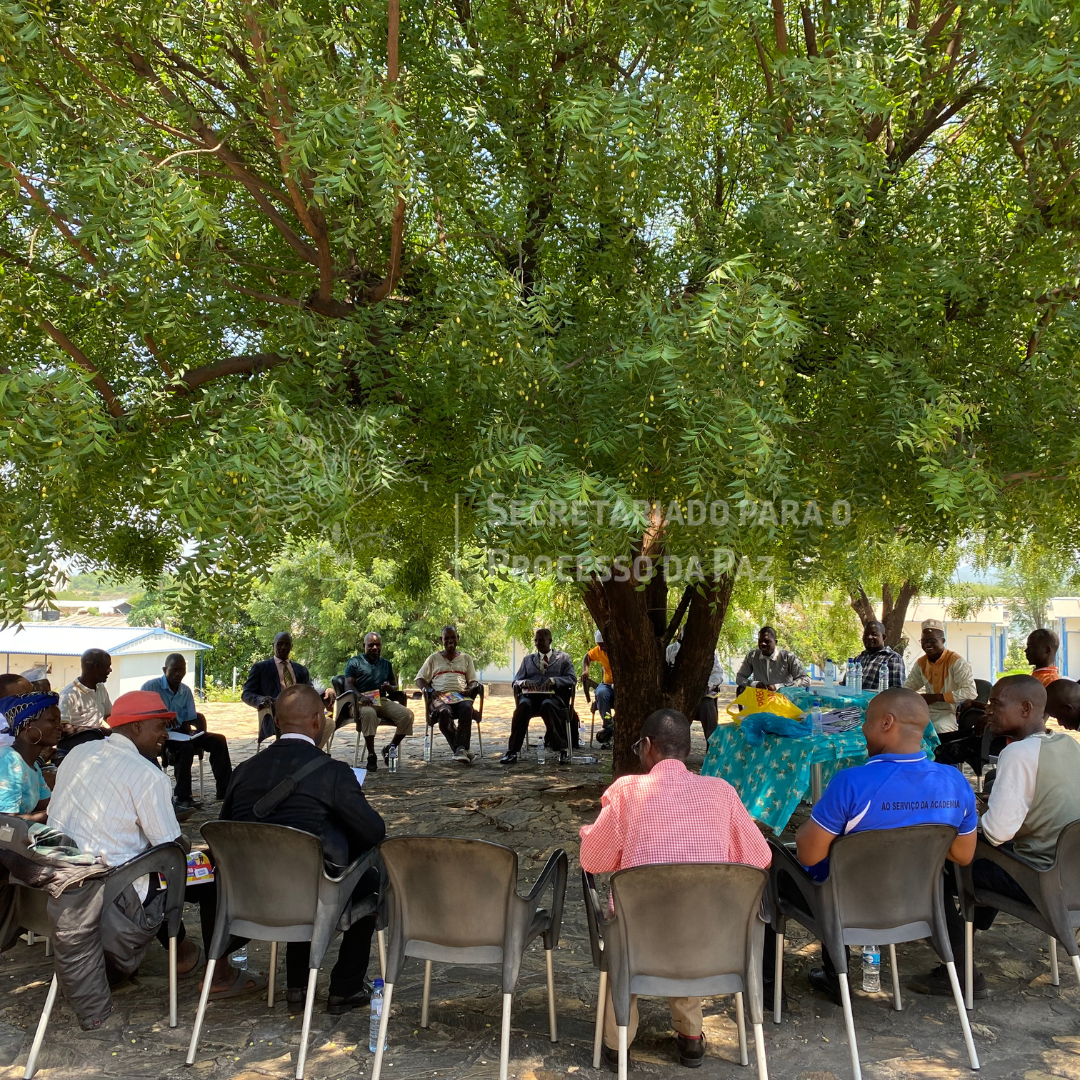
A meeting of the Peace Clubs will be held in Angónia, Tete province, in December 2022.
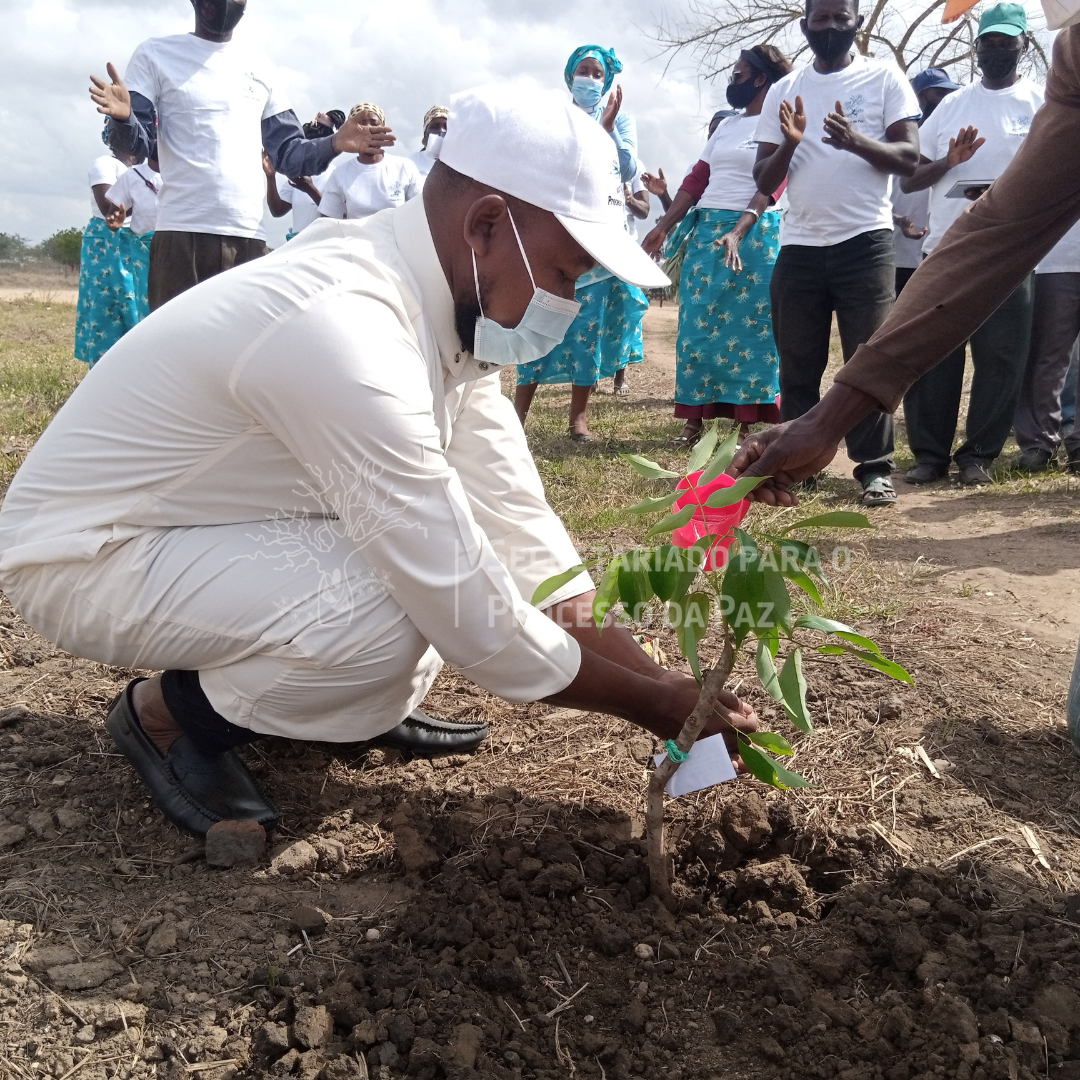
As part of the Peace Clubs' work, a tree is planted in Metuchira district, Sofala province. Since 2014, Peace Clubs have been formed by religious and community leaders in Mozambique to promote non-violent means of conflict resolution at a local level.
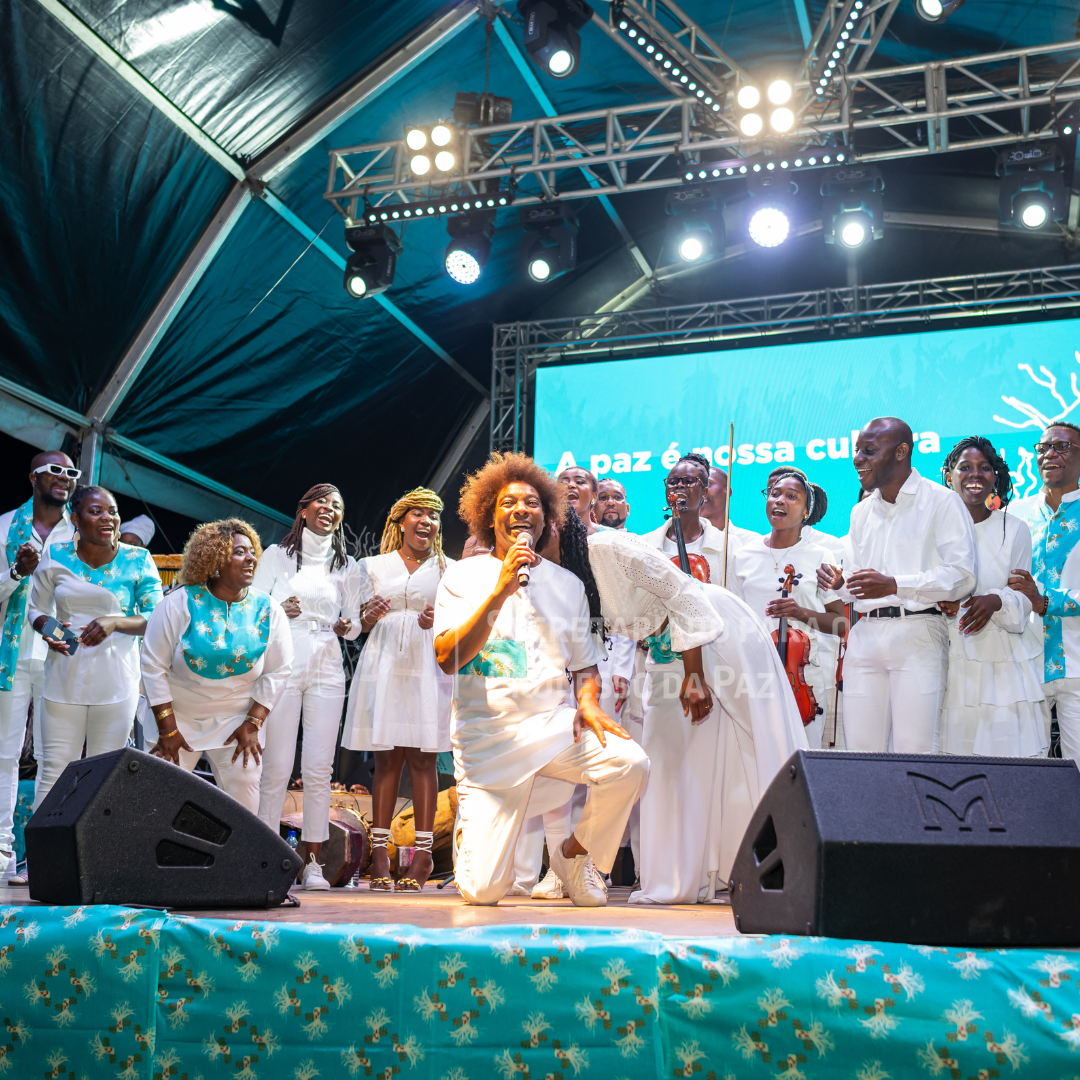
Mozambican musicians come together to launch the song and music video for the 'Peace is Our Culture' campaign. The song and video were creatively directed by Stewart Sukuma and featured artists from all over the country. Maputo, June 2023.
With the completion of disarmament and demobilisation activities, the Government, Renamo and other stakeholders have focused on long-term reintegration and national reconciliation to secure the sustainability of the peace process and consolidate national unity. Under the framework of DDR, PPS has worked with several partners to lay the groundwork for reconciliation and advance inclusivity within national institutions and communities, including the integration of Renamo officers into the police force.
Recognising the potential of education to foster a culture of peace within communities and throughout the country, the Ministry of Education and Human Development has partnered with PPS to implement activities to promote peace and culture. One of the activities includes a wide-reaching national reconciliation campaign with messages broadcast promoting peace and reconciliation on national television and social media platforms. PPS also supports the Ministry in implementing activities to promote peace education by incorporating reconciliation into the national curriculum.
PPS supports Peace Clubs, a network of interfaith religious and community leaders across Mozambique, to advance non-violent means of conflict resolution at the local level and to assist with the reception and reintegration of DDR beneficiaries. Peace Clubs prepare communities for receiving DDR beneficiaries and support DDR beneficiaries and their families during their transition to civilian life. Since the start of the DDR process in 2019, Peace Clubs have been established or reactivated with a focus on reconciliation in 32 locations across Mozambique.
PPS has also supported a nationwide reconciliation campaign called A Paz é Nossa Cultura (Peace is Our Culture). This campaign aims to harness the power of the arts, particularly music, to promote peace and foster meaningful dialogues throughout Mozambican society. As part of this work, a song and music video, creatively directed by Stewart Sukuma, who also serves as the campaign’s Ambassador, showcases the collaboration of talented singers from various Mozambican provinces.
Peacebuilding and reconciliation are key objectives of the long-term strategy of transforming communities and leading to peaceful coexistence. Best practice post-conflict development promotes reconciliation and peacebuilding, preventing the recurrence of conflict and working toward reconciling history, healing and moving forward. As the Peace Process transitions to a phase of greater emphasis on reintegration and reconciliation, it seeks to empower Mozambicans to build their own futures and positive narratives of peace.
‘With patience, tolerance, understanding and a spirit of reconciliation, Mozambicans will build a prosperous and conflict-free country.’ – President Filipe Nyusi
‘Renamo’s commitment is to keep the peace and promote national reconciliation’ – Renamo Leader, Ossufo Momade
Reconciliation is defined as a process in which society moves from division to a shared future. It seeks to rebuild and transform relationships across different sections of society and assist people to come to terms with narratives and experiences of the past. While direct violence may no longer be present, positive peace may still be out-of-reach without reconciliation and addressing past grievances that caused and fuelled conflict. Reconciliation is not intended to settle scores but to transform beliefs and relationships for more inclusive and sustainable peace. Meaningful national reconciliation has the potential to realise change by helping to overcome transgenerational issues and put the country on a new, more inclusive and unified pathway. Reconciliation in Mozambique, therefore, should be forward-looking through developing a shared vision for the future of the country.
Reconciliation should be strengthened and upheld at all levels of society, from the community level to the national. The national pillar provides overall leadership and seeks to build national capacity and structures for peace, social cohesion, inclusion and socio-economic development. The Principals of the Peace Process – President Filipe Nyusi and the leaders of Renamo, the late Afonso Dhlakama, and his successor Ossufo Momade – have repeatedly emphasised the importance of securing lasting peace and effective reconciliation. The strong national ownership and commitment to the Peace Process is an impetus for change.
The Ministry of Education has been identified as a strategic stakeholder for reconciliation due to its wide reach and potential to foster a culture of peace and reconciliation through education from an early age. Strategically placing the education sector at the centre of the reconciliation process is innovative and highlights the human-centred approach that has guided the implementation of the Maputo Accord. Civil society organisations and academia also have a leading role in shaping the national discussions around reconciliation.
At the community level, implementation of measures to promote positive change has begun, laying the groundwork for reconciliation. Evidence from communities indicates that the disarmament, demobilisation and reintegration (DDR) beneficiaries who have returned home or settled in new areas as community members are referred to as ‘brothers and sisters’ who are welcome in their homes and communities. Reconciliation initiatives include the Peace Clubs, a network of religious and community leaders that promotes dialogue for non-violent conflict resolution. These are working with local authorities to welcome DDR beneficiaries upon their arrival and support the receiving communities in preparing for reintegration.
Reconciliation differs between countries as each has its own historical and political context. The current Peace Process in Mozambique has been uniquely different to previous processes in the country, putting national efforts at its core. Reconciliation should continue this approach by fostering a nationally owned, comprehensive approach that considers cultural diversity, is gender sensitive and inclusive, helping Mozambique to continue on the path of peace and sustainable development.
Reintegration

A DDR beneficiary returns home to his family and begins his reintegration journey. Dondo, Sofala province.
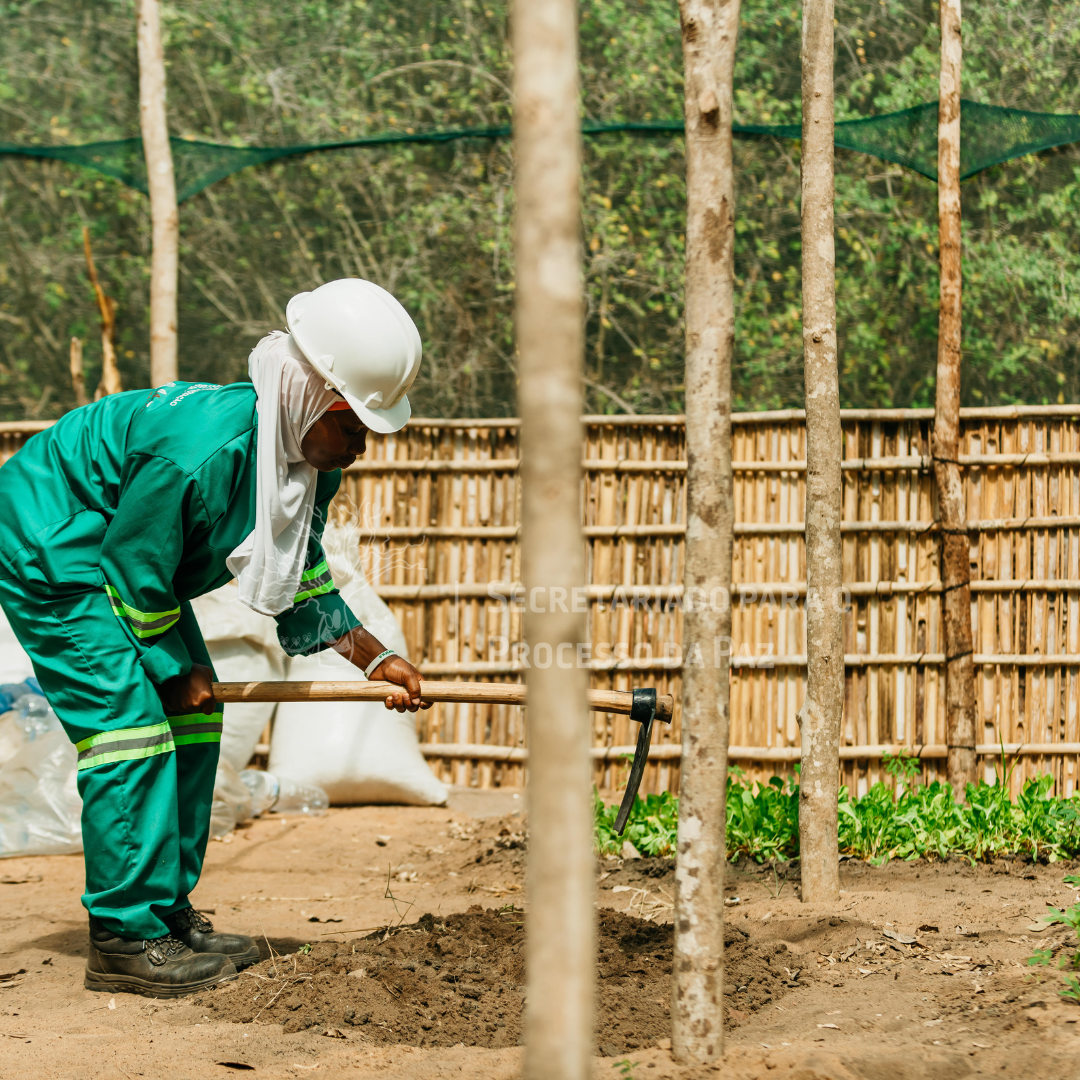
A daughter of a DDR beneficiary participates in a technical-vocational training course through an innovative project dedicated to life skills training, employability, business management and green technologies, located in Pemba, Cabo Delgado
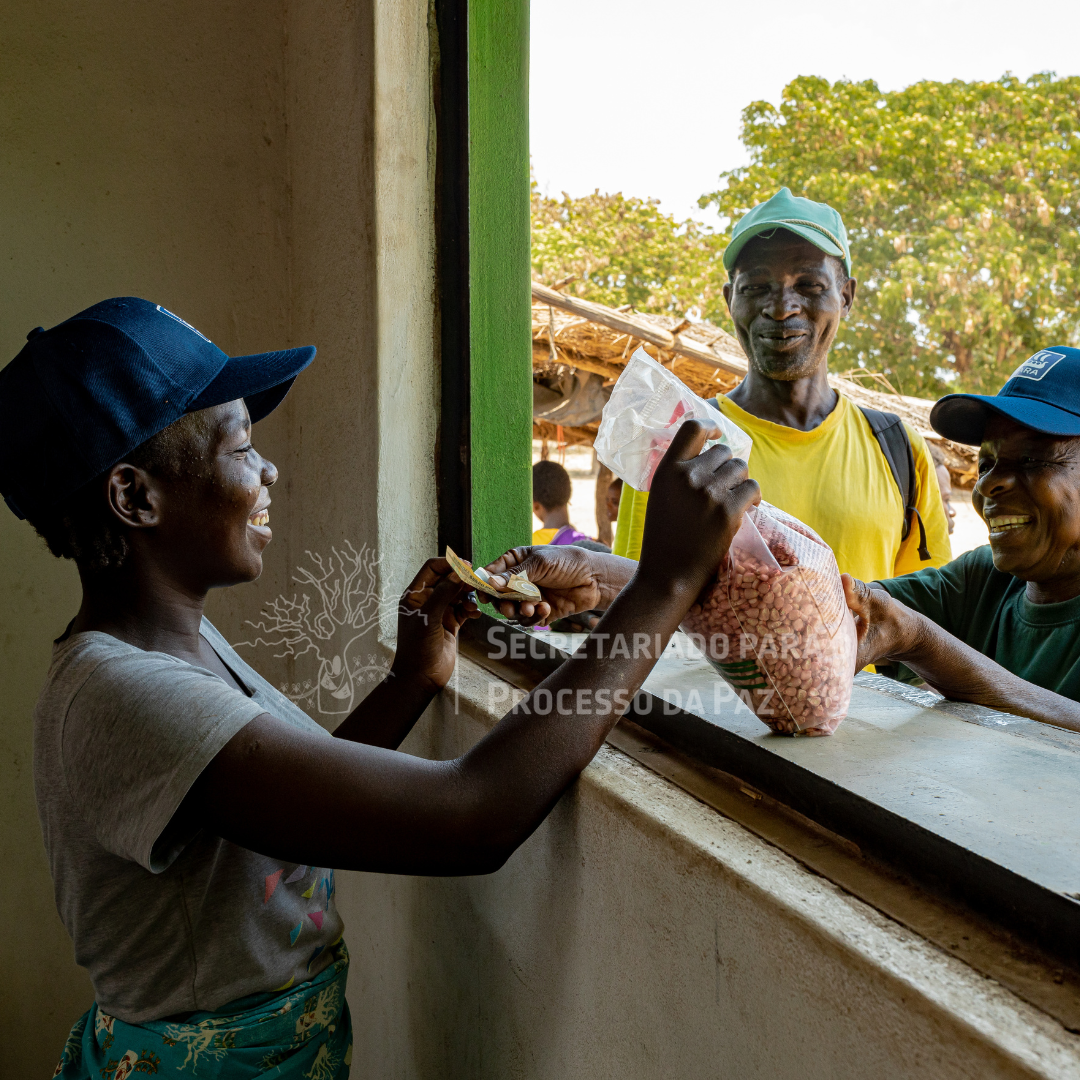
The daughter of a DDR beneficiary has taken advantage of her reintegration opportunity and her new business skills to run an agricultural input store in Nhamatanda, Sofala province, bringing agricultural inputs closer to home for the benefit of her community.
Reintegration is a central component of the Maputo Accord for Peace and National Reconciliation. Under the reintegration aspect of its mandate, the role of the Peace Process Secretariat is to create linkages between private, public, and development partners to facilitate the advance of economic, livelihood and educational opportunities for DDR beneficiaries, their families and their communities. Work on reintegration began in 2019 with the integration of DDR beneficiaries into the police force of Mozambique, gaining significant momentum in March 2021 coinciding with the launch of the Peace Process Reintegration Network, a platform to encourage bilateral support and multilateral coordination for reintegration among development partners. Progress on reintegration to date includes collaboration with over 30 entities doing inspiring work in over 50 districts across the country and over 1,700 individuals (DDR beneficiaries and family members) connected with reintegration opportunities.
Within the individual and family pillars of reintegration, DDR beneficiaries and their families engage in economic, livelihood and training opportunities such as employment, internships, technical and vocational training, and agricultural activities. Within the community pillar of reintegration, reintegration opportunities are those that provide mutual benefits to DDR beneficiaries, families and communities, for example, infrastructure development that impacts the wider community, and opportunities offered to community members together with DDR beneficiaries and family members.
Success Stories
I am deeply grateful for this internship opportunity, which has become a cornerstone of my professional journey. I would like this initiative to reach more DDR beneficiaries, especially young people, across parts of Mozambique. – Nora, 25 years old, recipient of an internship as part of a reintegration opportunity, Beira, Sofala Province
I dream of becoming a trainer in the field of industrial painting to pass on my knowledge to other young people in my province and country. This job has been a turning point in my life. I am grateful to my mother, a DDR beneficiary, for her valuable support and advice. – Miguel, 37 years old, training and internship opportunity recipient for DDR beneficiaries’ family members, Inhambane province
